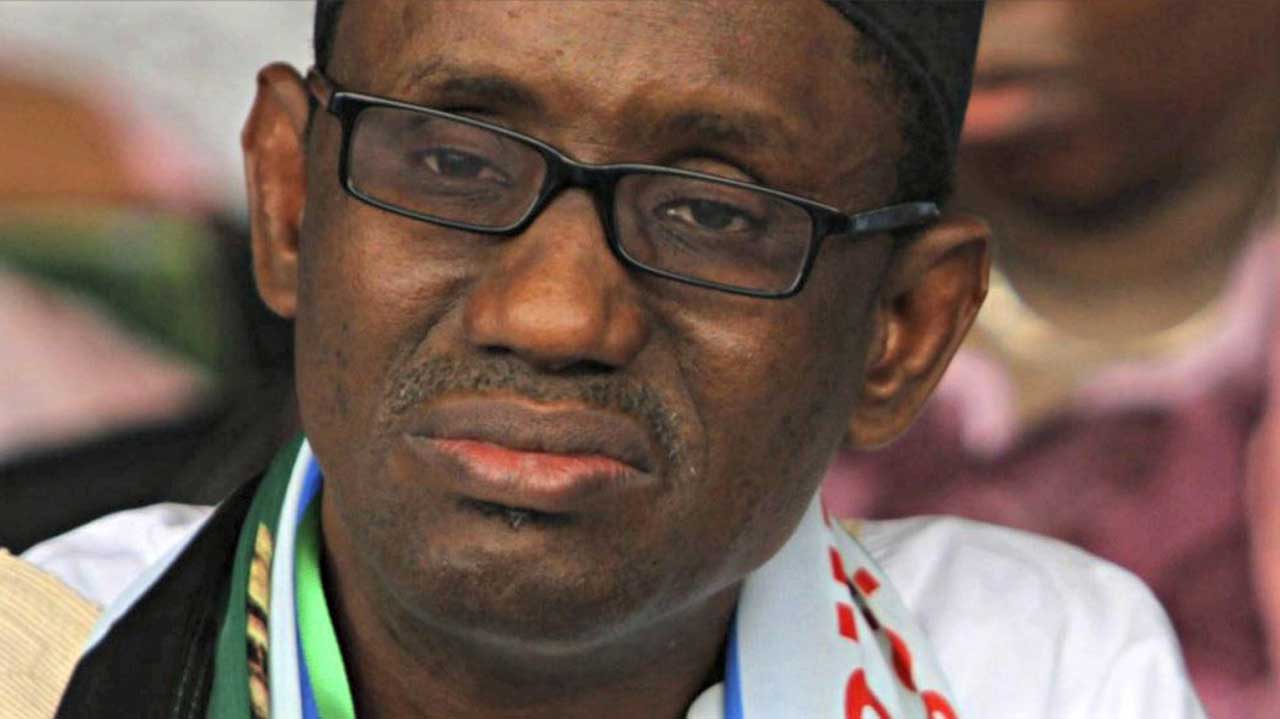To defend his brand, he granted a television interview to repair the damage wrecked by hundreds of thousands of clicks on social media and intractable broadcasts on WhatsApp. He had read a story for which he’s identified as the author. The words of the viral text were not only unfamiliar, but he also remarked in an earlier reaction on Twitter that “the wordings and thought process… couldn’t have come from me, or indeed any responsible person”. The story was a claim that the so-called banditry that’s overwhelmed the country was masterminded by “top government functionaries,” including President Muhammadu Buhari. “It’s a lie,” Ribadu told TVC News last week, and that he had already denied the story and wondered why the debunked story kept resurfacing online.
That televised denial became an instant irony because no sooner had the interview aired than it made the headline of random blogs and even reputed newspapers with scandalous headlines—that Ribadu singled out social media as the sole driver of Nigeria’s problem. The sensationalized stories underplayed the subject of his outcry: his misrepresentation on social media and long-running battle with an old nemesis called fake news. He never singled out social media in all his rebuttals.
Mallam Nuhu Ribadu is a convenient instrument of legitimizing bigoted theories of Nigeria, especially the powers that be, because of his global profile as an upstanding Nigerian since his memorable stint as founding Chairman of the EFCC and survival of public and partisan scrutinies thereafter. But the reason the interest in him by fake news merchants seems more dangerous is his ethnicity. It creates an illusion of credibility around the conspiracy. He’s Fulani, an unfairly pathologized ethnic group who’ve become busier in the media lately for condemning herder – farmer crises, telling hostile stereotype artists that herdsmen aren’t ambassadors of the larger Fulani, and dispelling the ethnophobia that’s come to trail the everyday Fulani.
For someone who’s mostly quiet on social media despite having combined followers of about a million, the sound of his silence in our chaotic virtual space has been unusual. He broke his virtual hiatus in mid 2019, when the toxic WhatsApp broadcast began circulating purporting that he had revealed that bandits, who’ve now become bogeymen in the North, were created by Buhari and certain members of the northern establishment as a political ploy to undermine the Jonathan-led government ahead of the 2015 general elections. The details of the story mischaracterized prominent northern leaders, including the Sultan of Sokoto, as architects of the fictional plot.
“It is amazing that some people would even contemplate believing such a cheap propaganda and blackmail,” Ribadu tweeted at the time, aware that the story had animated practising conspiracy theorists and heightened national curiosity around terror financing. And that wild story failed to die because it listed some six thousand Fulani mercenaries from across West Africa, with two thousand already in the country, as angels of death on standby to midwife a reign of terror.
About six months later, Ribadu was again moved to break his silence on the subject. “For the avoidance of doubt,” he said, “I never wrote or said those words being attributed to me. I have no knowledge of the details contained in the disjointed propaganda message in circulation and I urge the public to disregard it.” He also appealed for vigilance from security agencies, and noted that “(p)urveyors of fake news, more so one that is clearly a threat to national security should not be allowed to thrive.”
The virality and potential danger of the fake news instigated an independent investigation by Nigeria’s prime fact-checking platform, Dubawa, in July 2021. The fact-checkers reached out to the publisher of an obscure news magazine that reproduced the story under the title “Bandits were created by Muhammadu Buhari to oust Jonathan,” with Ribadu credited as the author, and enquired about its origin. Identified as Michael Eluwa, “the publisher,’” in Dubawa’s findings, “admitted that he was practising ‘guerilla Journalism’ to fight the government as such he won’t disclose the source of the information.”
This peril of fake news, which the purveyors seem to trivialize, underlines Ribadu’s latest interview and the interpretations of his call for regulation by the villains of his story confirmed a frightening obsession with his silence. One segment still accused him of heaving Nigeria’s problems on social media, which is a vaguely expressed insinuation that he had simplified Nigeria’s problem. To another segment, he’s charged with prescribing and justifying clampdowns on social media, which is a touchy subject among the youths still angry at the Buhari-led government for the suspension of Twitter.
But Ribadu’s calls for regulation is, as carried in an October 10 report by Premium Times, for the “owners of social media to do something to protect innocent people from suffering unjustly because of lies told against them on their platforms.” The report also revealed that he had informed relevant authorities of the existence of fake news merchants obsessed with making him the face of an invidious agenda.
While the obsession with Ribadu by faceless characters, which has necessitated Augusts visits to his social media platforms to deny authorship of these wild stories, has been troubling and points to a sinister agenda, his recommendation remains informed. He never appealed to the politicians for a solution. He called on the owners of social media networks to enhance vigilance around the vitality of fake news and the local security agencies to investigate and track the culprits.
The question of legislating social media has become a tricky subject, with politicians more interested in protecting personal interests than prioritizing national security, but Nigeria’s ethno-regional and religious divides call to a unified front against the devastations of fake news. The haste with which wild and false stories are being believed and circulated is proof that Nigerians have neglected facts for confirmation biases, and that’s always the warning shot before the implosion of any country. Triggers that come in form of fake news, as Ribadu also cited in his last interview, had caused humanity unforgettable disasters like the Rwandan genocide. We should all be wiser for it and stand against little but dangerous embers.




